On International Women’s Day 2019 (#IWD2019) Dr. Amber Darr picks five must-read books for those seeking a deeper understanding of the lives of women of Pakistan. Amber’s list intends to serve a three-fold purpose: it aims firstly to cast its net wide to include women from very diverse strata of the Pakistani society, next it highlights challenges faced by women in spheres ranging from the social, to the economic and political, and finally, it showcases and celebrates the authors of these books, all of whom are Pakistani women who have raised strong, unmistakeable voices in a context that often conspires to silence them.
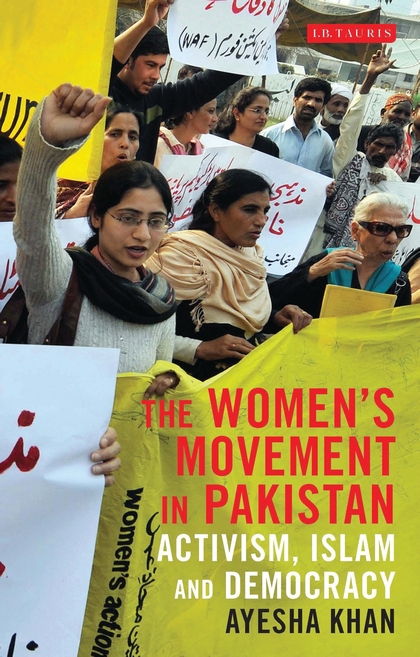 Ayesha Khan The Women’s Movement in Pakistan: Activism, Islam and Democracy (c) I. B. Tauris 2018
Ayesha Khan The Women’s Movement in Pakistan: Activism, Islam and Democracy (c) I. B. Tauris 2018
The first book on my list focuses on the struggle of Pakistani women for representation in the country’s political system and thereby a more equal participation in the political sphere. The book begins by examining the ‘Islamization’ policies of Pakistan’s former military dictator turned President, General Zia ul-Haq, the impact of these regressive policies on women’s rights and the birth of Pakistan’s modern women rights movement. The book debunks the popular myth that the women’s rights movement in Pakistan is a Western import and demonstrates that it is in fact a social movement that grew out of a specific local context in which women interacted and engaged with other social players and thereby realised the need not only for asserting their rights but also rallying together for more inclusive politics generally.
The book examines the ebb and flow of the women’s rights movements through the decades to present times when the space of women in society is once again under threat under the present regime which appears to have struck a compromise with the religious right to secure its place in the country’s politics. However, the book is more than a history of the modern women’s movement in Pakistan. It is a valuable attempt to reframe and reinvigorate a rights-based approach to politics and social change in the Islamic world at. a time when the world’s attention, appears to be focused on so-called pious Muslim women who operate almost exclusively within the framework of religion. The book draws upon Women’s Action Forum archives, court judgments, interviews with activists, lawyers and judges and analysis of newspapers and media reports.
The author of the book, Ayesha Khan, is a Senior Researcher at the Collective for Social Sciences Research in Karachi. She has been a journalist in international radio, local television and for newspapers and has also worked at various NGOs. She obtained her BA in Philosophy at Yale University in 1987 and her MA in Area Studies at SOAS, University of London, in 1989. Her contributions have appeared in Feminism, Empowerment and Development, Thinking International Relations Differently and Interrogating Imperialism and in journals including Feminist Economics and the Journal of Pakistan Medical Association. Her academic as well as professional credentials, particularly her first hand experienced of the women’s right movement in Pakistan places her in a unique position to catalogue its history and to offer a fresh insight into it.
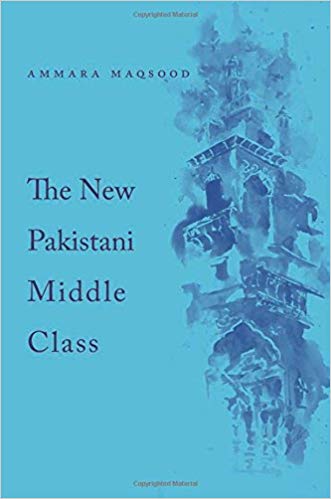
Ammara Maqsood, The New Pakistani Middle Class (c) Harvard University Press 2017
The next book on my list examines the lives of urban middle-class women of Pakistan—a strata of society often associated with the pursuit of comfort and pleasure, and perhaps most importantly, the security of marriage. The book peels off these layers to expose a segment of society preoccupied and shaped by a single-minded concern with Islamic piety. The book suggests that the concern with piety not only distances the emerging middle class from the old guard that was more intent to focus on the promotion of cultural diversity and religious harmony but also redefines the contours of the lives of women that inhabit it. Interestingly, however, the book argues that this piety may not always easily be labelled as regressive because it brings with it a hankering for the time-honoured accoutrements of modernity: education, the exercise of personal autonomy, and new ideas and modes of consumption reflecting global trends.
The book offers rich and skilfully drawn insights from a well-conceived ethnographic research and thereby adds to a growing corpus of work that explores the increasing appeal of religious piety among the Muslim middle classes in contemporary societies. Some have argued that the book’s overwhelming concern with piety as the defining feature of Pakistan’s upwardly mobile urban classes renders it somewhat one-dimensional. However, its thesis is perhaps vindicated by the rapidly transforming perceptions of modernity, especially among women, in which their piety comes to a head with their sexual agency. The case of the social media star Qandeel Baloch (labelled ‘Pakistan’s Kim Kardashian’) who was killed in 2016 for defying new middle-class strictures on sexual conduct, is perhaps an indication of the emerging tensions not only within the concept of piety but also among the women themselves some of who viewed Qandeel as a harbinger of female autonomy while others vilified her as an opportunist or worse.
The author of this book, Dr. Ammara Maqsood, presently a Lecturer in Social Anthropology at University College London is perhaps uniquely placed to offer this insight into the Lahore middle class for having lived and studied there until she proceeded to the United Kingdom for her post graduate studies. Ammara holds a DPhil and MPhil in Social Anthropology from the Institute of Social and Cultural Anthropology at Oxford. She was also an Economic Social Research Council Future Research Leaders Fellow at the Institute of Social and Cultural Anthropology. Before joining UCL, Ammara also taught at the University of Manchester. Her research interests are in the anthropology of the modern Muslim world, with a particular focus on middle-class culture and religious change in urban Pakistan.
My third book leaves behind the familiar comfort of the urban elite and travels deep into the feudal heartland of Sindh to explore the lives of women who live—and die—at the hands of the men who claim and assert ownership on them. This book highlights the manner in which the state justice system and informal processes of redress are mutually implicated in providing a space for honour-related violence—karo-kari—in Sindh. The book argues, that the label of ‘honour’ for these killings in fact masks underlying motivators as diverse as contest over leadership, resources and distribution and assertion of power in society. The book has been commended as a sensitive, scholarly, lucid, and coherently argued treatise which offers a new perspective for understanding and dealing with honour-related violence, which demonstrates that it is not honour that leads to violence but that it is used to legitimate and obfuscate a more deep-rooted, more heinous reality.
The book proves with reference to the record of actual court cases, that the state justice system is vulnerable to manipulation by rival parties who seek to indirectly dishonour each other’s men, by dishonouring their women. Women, therefore, while apparently the subject of these crimes are in fact mere pawns in a larger game. The book also demonstrates how the truth spoken during testimonies in court, is often twisted in its interpretations and how over time these interpretations come to matter more than the facts themselves. The book also demonstrates how the very man who claims to be the ‘wali’ or the guardian of the woman, is also instrumental in perpetuating karo-kari. Most importantly, however, the book provides an insight into the lives of women victims of these crimes who have had the courage not only to survive but also to become politically active agents agitating for the cause of women.
The author of the book, Dr. Nafisa Shah, writes from the point of view of close personal observation. She herself is an upper-class Sindhi woman, a prominent politician and member of National Assembly, and an anthropologist trained at Oxford. Having spent considerable time in interior Sindh she has the depth of understanding required to describe the perplexing realities in a set of binaries, such as law and lawlessness, right and wrong, justice and violence, state and non-state, normative and legal. Nafisa analyses her own changing position as a journalist, investigator, researcher, mayor of Khairpur, and finally a legislator, and its impact on her research into the practice of killing for honour. Perhaps her greatest contribution lies in the fact that alongside the traditional narrative of despair there exists a strong counter discourse of hope which may eventually emerge as the winner.
The books I have focused on so far are write about ‘visible women’, who may be seen for their educated elite status, their middle-class wealth or the sheer heinousness of the crimes perpetrated against them in the name of honour. However, my fourth book crosses the border from the visible to the invisible. The aptly titled Silent Voices, Untold Stories is a socio-legal study about law, empowerment and access to justice for women domestic workers in Pakistan. Female domestic workers in Pakistan are often shadowy figures, without real names, documented incomes, and certainly without a personal story. This book advances the argument that in addition to the gender, the lives of these women are shaped by socio-economic disparities that further aggravate the skewed power relations between domestic workers and their employers. Most interestingly, the book demonstrates how women may turn against women simply due to their different positions they enjoy on the power spectrum.
In discussing the legal recourse available to women domestic workers, the book argues that formal law may not be the most effective means for achieving justice for them. The book presents data from a small empirical study which opens an often tightly shut window into the hidden lives of domestic workers. The voices and experiences of women domestic workers expose not only various aspects of domestic service but also of challenges faced by them within the so-called sanctity of ‘respectable’ homes. These lived realities also highlight that despite being poor, illiterate and having no recourse to justice, domestic workers may not be easily dismissed as passive victims because they have the courage and determination to resist oppressive forces and to struggle for the sake of their families. The book finally argues that for an effective implementation of law, it is important to look beyond formal legal systems to non-legal strategies which may make justice more accessible for these women.
Unlike the other authors on my list so far, Dr. Ayesha Shahid is an outsider to the social class she writes about. However, her objectivity bolsters the legal perspective she adopts in this analysis and for which she has been trained. Dr. Shahid is presently a Senior Lecturer in Law at Coventry Law School at Coventry University. Her academic journey however, began in a very different setting at Peshawar University from where she obtained her LLB and LLM degrees. After completing her LLM she joined Peshawar University as a lecturer. In 2002, she moved to the United Kingdom where she was awarded the Warwick Postgraduate Research Fellowship to pursue her doctorate. Since obtaining a PhD from Warwick University, Dr. Shahid has taught at the University of Hull, Brunel University before joining Coventry Law School in 2017.
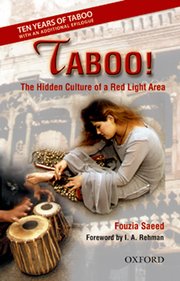 Fouzia Saeed Taboo: The Hidden Culture of Red Light Area (c) Oxford University Press 2001
Fouzia Saeed Taboo: The Hidden Culture of Red Light Area (c) Oxford University Press 2001
The last book on my list is a personal favourite. It has the wonderful and rare quality of being both academically excellent as well as anecdotally rich so that it both educates and entertains, if entertainment indeed is a word that can be used to describe the lives of the most invisible group of women of all—the prostitutes of Shahi Mohalla, Lahore’s historic and famous red-light district. The book tells its story through the lives of people linked to the Shahi Mohalla: the prostitutes with their pimps, managers and customers as well as musicians and other hangers on. The book highlights that most of these people are struggling to make a living by following ancient traditions, yet not knowing clearly where they fit in the larger picture of present-day society. The book also acknowledges the contributions that these people have made to Pakistani society especially to the world of the performing arts.
Taboo is a result of extensive research and marks the first definitive step towards sifting the myth from the reality of the red-light district and creating a factual account of life in the Mohalla. Perhaps the most remarkable aspect of the book is its absolute lack of judgment. The book relates to its subjects as individuals, making the most of the unique circumstances they find themselves in. Consequently, the book is neither sympathetic nor degrading; neither apologetic nor laudatory. It is in fact an accurate and a very moving record of real lives which does not shy from asking difficult questions about the treatment of the prostitutes at the hands of society. It asks, for instance, why prostitutes, rather than the men who pay for their services, are judged for sexual misconduct. The book also draws parallels between women in the Mohalla and women elsewhere to expose the misogyny that permeates and drives Pakistani society.
The tremendous relatability of the book derives from Dr. Fouzia Saeed’s deep empathy for her subjects. In the opening chapter, Dr. Saeed talks about her own desire to learn dancing and the obstacles she encountered in this regard which drove her to explore the deep-seated roots of the prejudice against these arts. It helps that Dr. Saeed has all the credentials necessary for undertaking such a sensitive study. Educated at the University of Peshawar and the University of Minnesota from where she obtained her doctorate in education, she has extensive experience of teaching and researching issues related to gender. Throughout her career she has also been an active and vocal advocate of women’s rights.
This article gives the views of the author, and not the position of the South Asia @ LSE blog, nor of the London School of Economics. Please read our comments policy before posting. Photo credit: Pixabay – BenediktGeyer
Dr. Amber Darr holds a PhD in Law from UCL. She is presently a lecturer in law at Coventry Law School and a Senior Research Fellow at the UCL Centre for Law Economics and Society. Amber is also a Barrister and prior to joining academia she practiced in Pakistan where she was made an Advocate of the Supreme Court in 2014.


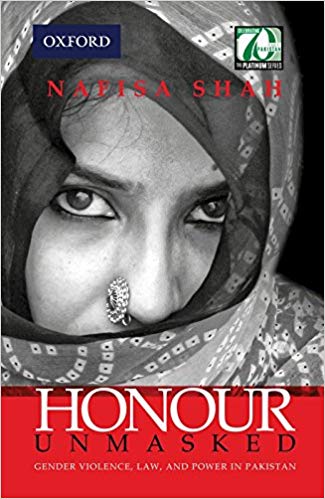
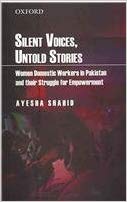




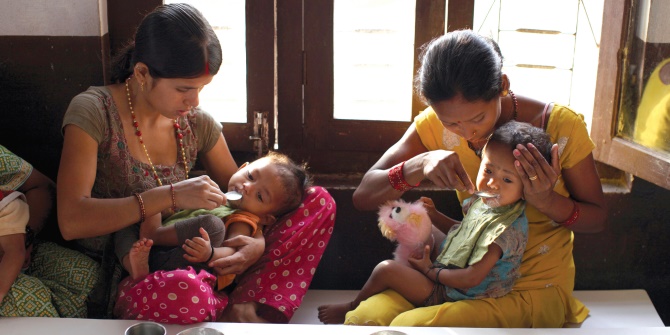

Looks to be a very useful collection of books for those wanting to understand not just the position of women in Pakistani society but the Pakistani society in general.
This part stands out in illustrating why we need academics, journalists and columnists (instead of getting raw information lacking context from the social media: “depth of understanding required to describe the perplexing realities in a set of binaries, such as law and lawlessness, right and wrong, justice and violence, state and non-state, normative and legal”